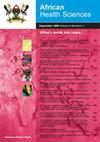影响老年非小细胞肺癌患者化疗依从性和生存的危险因素
IF 0.9
4区 医学
Q3 MEDICINE, GENERAL & INTERNAL
引用次数: 0
摘要
目的:非小细胞肺癌(Non-small cell lung cancer, NSCLC)具有恶性程度高、易复发转移的特点。本研究旨在分析影响老年非小细胞肺癌患者化疗依从性及生存状况的危险因素。 方法:回顾性分析2014年1月至2018年3月收治的110例患者的临床资料。根据化疗依从性分为非化疗组(n=25)、部分化疗组(n=30)和完全化疗组(n=55),随访至2021年3月。采用单因素分析和多因素Cox回归分析研究患者的临床病理特征。生存率比较采用Kaplan-Meier生存曲线和log-rank检验。 结果:110例NSCLC患者中,25例未接受化疗,30例接受部分化疗,55例接受完全化疗。文化程度、病理肿瘤-淋巴结转移(TNM)分期、病理类型、手术入路、居住地、支付方式、化疗分期是影响化疗依从性的独立危险因素(P<0.05)。 结论:教育程度低、TNM晚期、有鳞状细胞癌病史、有开胸史、居住农村、无医疗保险、化疗复发期或巩固期患者应特别注意提高化疗依从性;关键词:化疗依从性;老年人;非小细胞肺癌;风险因素;生存分析。本文章由计算机程序翻译,如有差异,请以英文原文为准。
Risk factors influencing chemotherapy compliance and survival of elderly patients with non-small cell lung cancer
Objective: Non-small cell lung cancer (NSCLC) has high degree of malignance and proneness to recurrence and metastasis. The aim of this study was to analyse the risk factors influencing the chemotherapy compliance and survival status of elderly NSCLC patients.
Methods: The clinical data of 110 patients admitted from January 2014 to March 2018 were retrospectively analysed. They were assigned to non-chemotherapy (n=25), partial chemotherapy (n=30) and complete chemotherapy (n=55) groups according to chemotherapy compliance, and followed up until March 2021. Their clinicopathological characteristics were investigated by univariate analysis and then multivariate Cox regression analysis. The survival rates were compared by Kaplan-Meier survival curve and log-rank test.
Results: Among the 110 NSCLC patients, 25 did not receive chemotherapy, 30 underwent partial chemotherapy and 55 received complete chemotherapy. Educational level, pathological tumor-node-metastasis (TNM) stage, pathological type, surgical approach, place of residence, payment mode and chemotherapy stage were independent risk factors influencing the chemotherapy compliance (P<0.05).
Conclusion: Particular attention should be paid to improving the chemotherapy compliance of patients with low educational level, late TNM stage, medical history of squamous cell carcinoma, history of thoracotomy, living in rural areas and no medical insurance, and those in the recurrence period or consolidation period of chemotherapy.
Keywords: Chemotherapy compliance; elderly; non-small cell lung cancer; risk factor; survival analysis.
求助全文
通过发布文献求助,成功后即可免费获取论文全文。
去求助
来源期刊

African Health Sciences
MEDICINE, GENERAL & INTERNAL-
CiteScore
2.30
自引率
0.00%
发文量
179
审稿时长
>12 weeks
期刊介绍:
The African Health Sciences is an internationally refereed journal publishing original articles on research, clinical practice, public health, policy, planning, implementation and evaluation, in the health and related sciences relevant to Africa and the tropics. Its objectives are to: Advocate for and promote the growth of reading culture in sub Saharan Africa; Provide a high quality journal in which health and policy and other researchers and practitioners in the region can and world wide, can publish their work; Promote relevant health system research and publication in the region including alternative means of health care financing, the burden of and solution of health problems in marginalized urban and rural communities amongst the displaced and others affected by conflict; Promote research and the systematic collection and collation and publication of data on diseases and conditions of equity and influence; Promote development of evidence-based policies and guidelines for clinical, public health and other practitioners. African Health Sciences acknowledges support provided by the African Health Journals Partnership Project that is funded by the US National Institutes of Health (through the National Library of Medicine and the Fogarty International Center) and facilitated by the Council of Science Editors.
 求助内容:
求助内容: 应助结果提醒方式:
应助结果提醒方式:


